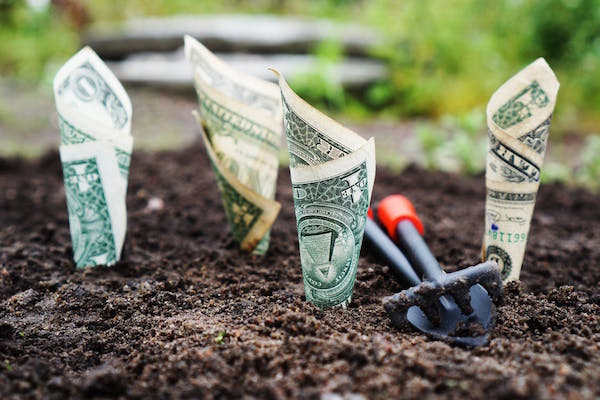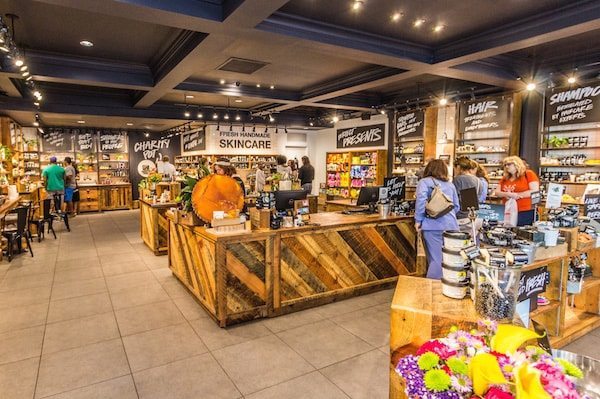For decades, many people who wanted to work in the food industry would try to land career jobs with big corporations. That’s not necessarily the case anymore.
Over the last few decades, the corporate landscape has become much less favorable for workers, and the buzz around entrepreneurship has intensified. As a result, more folks are bypassing big companies and starting their own food businesses instead. This allows them to build brands around their own values, develop truly innovative products, and, to a certain degree, chart their own destinies.
Although food entrepreneurs today have access to ample business-building tools and resources, they still have a lot to learn as they go. Entrepreneurship is full of lessons, many of which come the hard way: by making mistakes.
But the great thing about today’s food entrepreneurship climate is that so many successful founders are eager to share lessons they’ve learned with those just starting out. This is what we facilitate through FFI programs and our Edible-Alpha® Learning Center and podcast.
In the latest episode, Brad chats with Kwadwo Ofusu-Ofori, founder and CEO of Twi Pods, about the ups, downs, and overall arc of food entrepreneurship today. They both share key lessons learned from building companies and helping other entrepreneurs build theirs.
1. Personal and professional lives must mesh. While it would be awesome to keep certain hours for business and certain hours for family, this isn’t the reality for most food entrepreneurs. As Kwadwo learned, your professional goals must be compatible with your personal life—or none of it will work. “These things are not divorced from each other,” he says. “Whether it’s getting married or making sure you can pay your mortgage, it all goes into the entrepreneurial journey.”
2. If it’s not worth your own investment, just stop. Many early-stage entrepreneurs get friends and family to invest, which can either launch their success—or make holidays super awkward. To ensure your business is a good bet, Brad advises writing a financial plan early on. If the plan isn’t worth your own time and money, you can’t ask others to buy in. Go back to the drawing board.
3. It’s all about connections and networking. What makes Silicon Valley and other entrepreneurial hubs thrive is that “people introduce you to people,” says Kwadwo. Food entrepreneurs need to get out there and network, join business associations, participate in accelerator programs and bootcamps like FFI offers, and do whatever they can to meet people, connect, and collaborate.
4. Don’t let lack of resources limit end goals. After his first food business struggled, Kwadwo made a profound discovery: “I realized—and I’d give this advice to entrepreneurs—that if you look at the resources you have and decide what you can achieve with those resources, that’s the wrong way to approach it.”
Instead, he envisioned what he wanted to create and figured out the funding and other resources he needed. Or, as Brad puts it, “focus on what you want, and do what it takes to make it happen.”
5. If your message isn’t working, change it. If you realize your message isn’t landing with consumers, “you have two choices,” says Kwadwo. “You can either say ‘this is my message’ and go find people who can get down with it, or change your message to fit the target audience you want.”
Kwadwo chose option B with his business, and the new, simplified messaging worked. Brad says this is usually the best call. “If the message isn’t resonating, don’t keep pushing,” he says. “There may be examples of people who have blasted their way through, but honestly, why? Change the message.”
6. Plan for success, not failure. Of course, no founder knows 100% that their business will still be viable in a few years—but it’s crucial to plan as if it will be. “Focus not on failure but on what it’s going to take to win,” Brad says. “Always plan for success and understand that what you’re doing is not for today but for three years from now.”

Kwadwo Owusu-Ofori has learned a lot about entrepreneurship since launching his first food business, and he credits a business scholarship, accelerator programs, FaB Wisconsin, and various mentors for helping him find success. Now the Twi Pods founder is on a roll with his company, and he drops by the podcast to share key insights with up-and-comers. Tune into this compelling conversation about the entrepreneurial journey today.
And now, our roundup of the best food and beverage finance news, events and resources from around the web…

Business Model Insights
- Tanka’s Pitch Slam victory benefits Indigenous people and the planet (New Hope Network)
- Learn about an innovative business model and noble mission that are regenerating land, restoring buffalo herds, and nourishing underserved communities.
- How the Ukraine conflict and supply chain chaos could play out in food prices (Food Dive)
- Four Steps to Reducing Manufacturing Risk (Food Manufacturing)

Raising Capital
- DoorDash Launches Accelerator for Local Goods From Rising Entrepreneurs (Progressive Grocer)
- New program will empower 50 food entrepreneurs with key resources, education, and $5,000 in funding to bring local products to market for distribution.
- 7 Key Takeaways for Regenerative Food Systems from Expo West (Regenerative Food Systems Investment Forum)
- “A diversity of thinking and perspectives makes everyone better” – Mondelez’s Brigette Wolf on working with start-ups and more inclusive investing (Just Food)

CPG/National Brands
- How They Did It: Nine Ways the Fastest-Growing CPG Companies Accelerated Growth (IRI)
- Brands should take a page from growth leaders and keep these key themes at the forefront during what is looking to be another challenging year ahead.
- How to reintroduce sampling to the post-pandemic consumer (Food Dive)
- The food industry needs to be more proactive on plastic (Just Food)

Market Trends
- Debunking the industry bias behind plant-based meat (Just Food)
- The prevailing narrative is that plant-based meat, with enough funding and marketing, will disrupt animal-based meat and move mainstream. Not so fast. Consumers don’t seem to be buying in.
- EXPO WEST 2022 trendspotting: From mushroom elixirs to climate-friendly crackers (FoodNavigator-USA)
- From inspiring enjoyment to consumer empowerment, Mintel shares 4 marketing & innovation trends to watch as pandemic ebbs (FoodNavigator-USA)

Farming and AgTech
- USDA announces organic dairy ‘origin of livestock’ rule (Progressive Dairy)
- Long-awaited final rule establishes uniform standards for transitioning dairy cattle to organic production, closing a loophole that enables unfair organic marketing practices.
- A Regenerative Grazing Revolution Is Taking Root in the Mid-Atlantic (Civil Eats)
- Can Nature Reclaim Iowa? (Civil Eats)

Deals/M&A
- Bobbie drinks up $50M to expand infant formula product line (TechCrunch)
- Fresh off an $18 million revenue year, the direct-to-consumer organic infant formula company is getting out in front of its product pipeline with a sizable series B raise.
- Local Bounti to acquire indoor farming operator Pete’s for $122.5M (Food Dive)
- Driscoll’s, Plenty partner on vertical farm for strawberries (Food Dive)

Industry Events
Virtual events:
- FFI April Quarterly Trends Talk: 4/11
- Nutrition Capital Network Spring Investor Meeting: 4/19–4/20 (hybrid event)
- Edible-Alpha® MVP Series Workshop: Packaging Systems Development & Optimization: 4/27
- Edible-Alpha® Immersion Training: Scenario Planning: 5/2–5/11
- Food Edge Summit: Sustainably Feeding Our Growing Population: 5/3–5/5 (hybrid event)
- Edible-Alpha® MVP Series Workshop: Optimizing Management, Operations, Quality & Food Safety Development: 5/11
- Edible-Alpha® MVP Series Workshop: Key Legal Considerations and Managing Your Business Risk: 5/25
- Edible-Alpha® MVP Series Workshop: Developing a High-Performance Organization: 6/08
- WSJ Global Food Forum: 6/27–6/28 (hybrid event)
- IFT First: Annual Event and Expo: 7/10–7/13 (hybrid event)
In-person events:
- Specialty Coffee Expo: 4/8–4/9 in Boston, MA
- FreshEX: 4/12 in Madison, WI
- SupplySide East: 4/12–4/13 in Secaucus, NJ
- Nutrition Capital Network Spring Investor Meeting: 4/19–4/20 in New York, NY
- Midwest Food Products Association Sanitation Seminar: 4/28 in Wisconsin Dells, WI
- Petfood Forum: 5/2–5/4 in Kansas City, MO
- Craft Brewers Conference & BrewExpo America: 5/2–5/5 in Minneapolis, MN
- Food Edge Summit: Sustainably Feeding Our Growing Population: 5/3–5/5 in Boston, MA
- Food and Beverage Wisconsin Spring Business Mixer: 5/5 in Milwaukee, WI
- Northwest Wisconsin Women in Conservation Spring Conservation Gathering: 5/6 in Amery, WI
- Grow Your Farm Business: Accessing New Markets Through Distribution: 5/9 in Atlanta, IL
- Food Safety Summit: 5/9–5/12 in Rosemont, IL
- Soil Health Academy School: Adaptive Grazing with Multiple Species: 5/17–5/19 in Uniontown, AL
- National Restaurant Association Show: 5/21–5/24 in Chicago, IL
- Sweets & Snacks Expo: 5/23–5/26 in Chicago, IL
- Soil Health Academy School: Grazing for Profit & Regeneration: 5/31–6/2 in Cimarron, NM
- International Dairy Deli Bakery Association Show: 6/5–6/6 in Atlanta, GA
